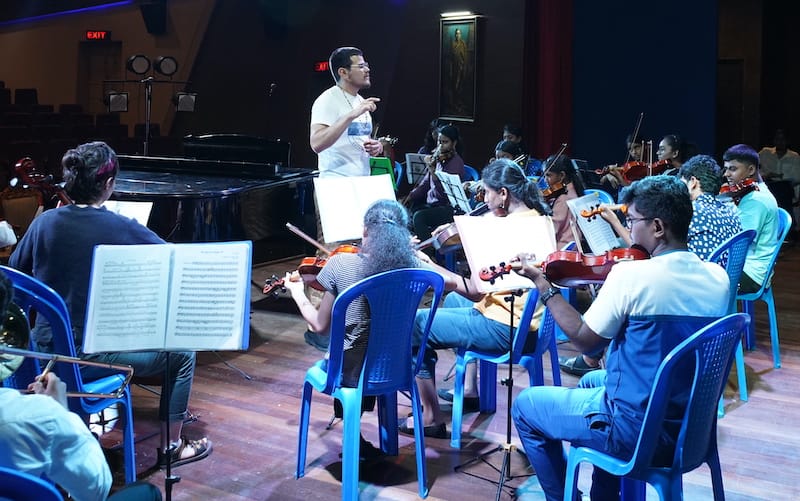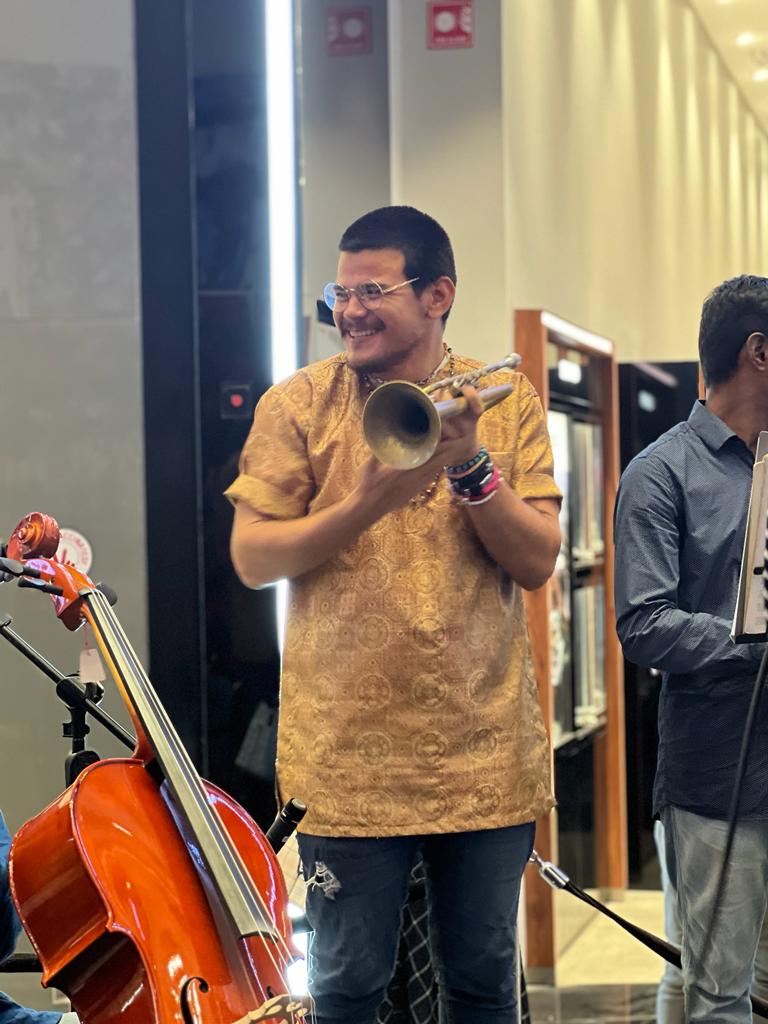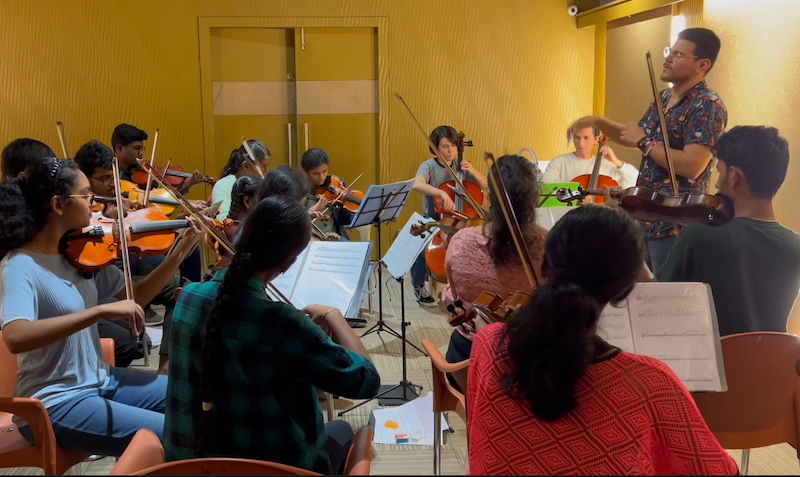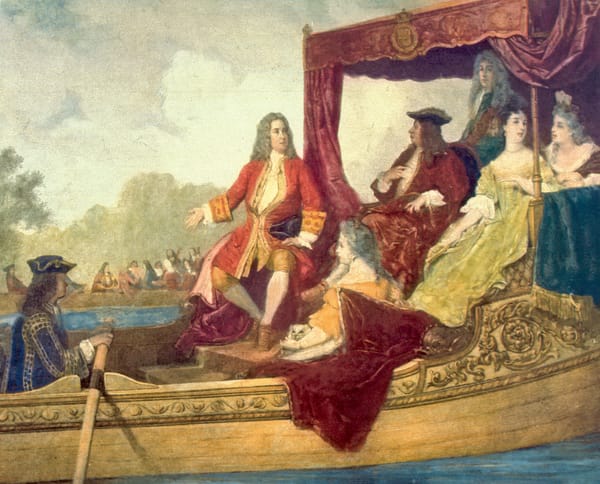Harmonizing Communities: Moisés Lugo and the Chennai Youth Sinfonietta


Born in Paraguaná, Venezuela, Moisés Lugo is a dedicated music educator and trumpeter. Trained in El Sistema in Paraguaná, he honed his skills under local teachers in his city before going on to perform under the batons of Simon Rattle and Gustavo Dudamel. With over a decade of experience in music education, Moisés passionately empowers children and teenagers through his teaching. Grateful for mentors like Panos Karan and Pedro Gomez Briceño, he actively contributes to charitable initiatives like Keys of Change. Moisés has made a global impact as a music teacher, notably in Ghana with Kinder Paradise.
In this interview, Moisés shares insights into his musical journey and teaching philosophy, shedding light on his experiences fostering musical talent in diverse communities. From his beginnings in Venezuela to his work in Ghana and his current endeavours with Chennai Youth Sinfonietta, Moisés exemplifies the profound impact of music education on individuals and society.
Serenade Team: Can you share your musical background and how it aligns with the mission of fostering musical talent in diverse communities? What philosophies or principles guide your approach to teaching music, especially within a diverse and inclusive environment like Chennai Youth Sinfonietta?
Moisés Lugo: My musical journey began at the age of 12 within the renowned music project of Youth and Children’s Orchestras and Choirs of Venezuela, known as ‘El Sistema.’ Here, I engaged in diverse levels of music theory, trumpet classes, brass and woodwind ensembles, and orchestras, which profoundly shaped my perspective on musical learning and teaching.
The guiding principles of my teaching revolve around inclusivity, welcoming individuals from all walks of life who are interested in music education, regardless of their social backgrounds, ethnicity, or intellectual abilities. My goal is to facilitate an environment where every individual can thrive through both individual and collaborative musical and social experiences.
ST: Could you describe a specific instance or project where your teaching had a transformative impact on young musicians or a community? How do you envision contributing to the goals of Chennai Youth Sinfonietta in terms of fostering community engagement and musical excellence simultaneously?
ML: As a volunteer for the Keys of Change foundation and social project, I dedicated my time to serving as a brass and woodwind teacher in Ghana, Africa, working with orphans, vulnerable, and street children. Our teaching endeavours aimed to uplift each child through the transformative power of music, fostering social integration, emotional growth, and artistic development. These efforts instilled values of discipline, respect, and collaboration among the members of the musical community comprising children and young people.
In my commitment to contributing to the goals of Chennai Youth Sinfonietta, I prioritize inspiring and motivating students at all levels of their musical, theoretical, and emotional learning. Moreover, I strive to empower students to recognize the profound musical and social impact of their endeavours within their community.
ST: What teaching methodologies or techniques do you find most effective in nurturing young musical talent, considering the diverse backgrounds of the students? How do you plan to integrate your diverse experiences into the educational framework of Chennai Youth Sinfonietta?
ML: I believe that creating a supportive environment for students is the most effective approach. When students feel supported, they become active participants in a community where they can learn and contribute daily. Regardless of age or social differences, students recognize their value as members of the community and their ability to support others.
My diverse experiences have shaped my approach to educational integration, which emphasizes the combination of social, academic, and emotional environments throughout the learning process. I believe that success stems from careful observation, organization, and refinement of both individual and group processes within the community.

ST: Given the emphasis on collaboration and mentorship, could you discuss your approach to collaborating with other faculty members and mentoring young musicians? How do you perceive the role of mentorship in shaping the next generation of musicians, and how would you contribute to this at CYS?
ML: Effective teaching hinges upon the teacher’s vision and emotional rapport with students. It’s imperative for educators to engage with students on both academic and emotional fronts, nurturing their holistic development. To cultivate successful future generations, mentors must guide students through every stage of their learning journey, acknowledging their strengths and weaknesses as individuals.
ST: How do you believe music education contributes to societal change, especially in promoting inclusivity and harmony, and how can CYS further this impact? Can you share any initiatives or experiences where music education was used as a tool for positive social change, aligning with the vision of CYS?
ML: Music education plays a vital role in driving societal change by integrating children and young people and nurturing their individual, academic, and social skills through musical engagement. By encouraging both individual and group participation, music indirectly contributes to positive societal transformation.
In my perspective, education should prioritize the holistic well-being of students, encompassing their mental, emotional, physical, and spiritual health. Teachers wield significant influence in caring for, promoting, and educating students using a blend of technical and interpersonal approaches.
The elements of musical academic education, characterized by progressive learning and ongoing evolution, significantly enhance the well-being and prospects of children and young people. This holistic approach ultimately shapes their futures in a positive manner.





